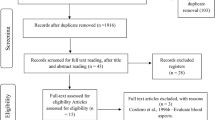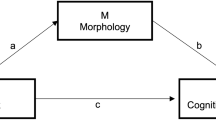Abstract
Manganese (Mn) is an essential trace element with well characterized neurotoxic effects in high concentrations. Neurochemically, the initial neurotoxic effect of Mn is the perturbation of striatal γ-aminobutyric acid levels. Specific tasks for the assessment of cognitive functions subserved by fronto-striatal loops are available as the stop-change task (SCT) assessing control of multi-component behavior and action cascading. In a cross-sectional study, fifty male welders and 28 age-matched controls completed the SCT during a whole day examination. Reaction times, responses accuracy, and event-related potentials (ERPs) from electroencephalogram (EEG) recordings were analyzed. The shift exposure of the welders to respirable Mn was stratified by 20 µg/m3 in 23 low-exposed (median = 4.7 µg/m3) and 27 high-exposed welders (median = 86.0 µg/m3). Welders graduation was lower and was therefore included in the analyses. The task-related factor (stop-change delay, SCD) modified the responses as expected; however, the lack of an interaction “SCD × group” revealed no differences between welders and controls. EEG data showed that the “SCD” modulated the amplitude of the P3 ERP in controls stronger than in welders. There was no difference between the two groups of welders and no association between airborne or systemic Mn and the P3 ERP. Moreover, the P3 amplitude was smaller in subjects with lower education. These results showed that multitasking performance and cognitive flexibility are not impaired in welders. The electrophysiological results gave a weak hint that relevant neurobiological processes were different in welders as compared to controls but this may be related to lower education.



Similar content being viewed by others
References
Anger WK (2003) Neurobehavioural tests and systems to assess neurotoxic exposures in the workplace and community. Occup Environ Med 60(7):531–548
Anger WK, Liang YX, Nell V et al (2000) Lessons learned—15 years of the WHO-NCTB: a review. Neurotoxicology 21(5):837–846
Antunes MB, Bowler R, Doty RL (2007) San Francisco/Oakland Bay Bridge Welder Study: olfactory function. Neurology 69(12):1278–1284. doi:10.1212/01.wnl.0000276988.50742.5e
Beste C, Saft C (2015) Action selection in a possible model of striatal medium spiny neuron dysfunction: behavioral and EEG data in a patient with benign hereditary chorea. Brain Struct Funct 220(1): 221–228. doi:10.1007/s00429-013-0649-9
Chang Y, Kim Y, Woo ST et al (2009) High signal intensity on magnetic resonance imaging is a better predictor of neurobehavioral performances than blood manganese in asymptomatic welders. Neurotoxicology 30(4):555–563. doi:10.1016/j.neuro.2009.04.002
Chen P, Chakraborty S, Peres TV, Bowman AB, Aschner M (2015) Manganese-induced neurotoxicity: from C. elegans to humans. Toxicol Res Uk 4(2):191–202. doi:10.1039/c4tx00127c
Criswell SR, Perlmutter JS, Videen TO et al (2011) Reduced uptake of [(1)F]FDOPA PET in asymptomatic welders with occupational manganese exposure. Neurology 76(15):1296–1301. doi:10.1212/WNL.0b013e3182152830
Dippel G, Beste C (2015) A causal role of the right inferior frontal cortex in implementing strategies for multi-component behaviour. Nat Commun 6:6587. doi:10.1038/ncomms7587
Duncan J (2010) The multiple-demand (MD) system of the primate brain: mental programs for intelligent behaviour. Trends Cogn Sci 14(4):172–179. doi:10.1016/j.tics.2010.01.004
Dydak U, Jiang YM, Long LL et al (2011) In vivo measurement of brain GABA concentrations by magnetic resonance spectroscopy in smelters occupationally exposed to manganese. Environ Health Persp 119(2):219–224 doi:10.1289/ehp.1002192
Ellingsen DG, Kusraeva Z, Bast-Pettersen R et al (2014) The interaction between manganese exposure and alcohol on neurobehavioral outcomes in welders. Neurotoxicol Teratol 41:8–15. doi:10.1016/j.ntt.2013.11.004
Fored CM, Fryzek JP, Brandt L et al (2006) Parkinson’s disease and other basal ganglia or movement disorders in a large nationwide cohort of Swedish welders. Occup Environ Med 63(2):135–140. doi:10.1136/oem.2005.022921
Fryzek JP, Hansen J, Cohen S et al (2005) A cohort study of Parkinson’s disease and other neurodegenerative disorders in Danish welders. J Occup Environ Med 47(5):466–472
Gohil K, Stock AK, Beste C (2015) The importance of sensory integration processes for action cascading. Sci Rep 5:9485. doi:10.1038/srep09485
Gohil K, Dippel G, Beste C (2016a) Questioning the role of the frontopolar cortex in multi-component behavior–a TMS/EEG study. Sci Rep 6:22317. doi:10.1038/srep22317
Gohil K, Hahne A, Beste C (2016b) Improvements of sensorimotor processes during action cascading associated with changes in sensory processing architecture-insights from sensory deprivation. Sci Rep 6:28259. doi:10.1038/srep28259
Greiffenstein MF, Lees-Haley PR (2007) Neuropsychological correlates of manganese exposure: a meta-analysis. J Clin Exp Neuropsychol 29(2):113–126 doi:10.1080/13803390600781105
Guilarte TR (2013) Manganese neurotoxicity: new perspectives from behavioral, neuroimaging, and neuropathological studies in humans and non-human primates. Front Aging Neurosci 5:23 doi:10.3389/fnagi.2013.00023
Guilarte TR, Chen MK (2007) Manganese inhibits NMDA receptor channel function: implications to psychiatric and cognitive effects. Neurotoxicology 28(6):1147–1152. doi:10.1016/j.neuro.2007.06.005
Gwiazda RH, Lee D, Sheridan J, Smith DR (2002) Low cumulative manganese exposure affects striatal GABA but not dopamine. Neurotoxicology 23(1):69–76
Gwiazda R, Lucchini R, Smith D (2007) Adequacy and consistency of animal studies to evaluate the neurotoxicity of chronic low-level manganese exposure in humans. J Toxicol Environ Health A 70(7):594–605. doi:10.1080/10937400600882897
Herrmann CS, Knight RT (2001) Mechanisms of human attention: event-related potentials and oscillations. Neurosci Biobehav Rev 25(6):465–476
Hoet P, Vanmarcke E, Geens T, Deumer G, Haufroid V, Roels HA (2012) Manganese in plasma: a promising biomarker of exposure to Mn in welders. A pilot study. Toxicol Lett 213(1):69–74. doi:10.1016/j.toxlet.2011.06.013
Joy S, Fein D, Kaplan E (2003) Decoding digit symbol: speed, memory, and visual scanning. Assessment 10(1):56–65
Kim E, Kim Y, Cheong HK et al (2005) Pallidal index on MRI as a target organ dose of manganese: structural equation model analysis. Neurotoxicology 26(3):351–359. doi:10.1016/j.neuro.2005.01.007
Lezak MD (2012) Neuropsychological assessment, 5th edn. Oxford University Press, Oxford
Logan GD, Cowan WB (1984) On the ability to inhibit thought and action: a theory of an act of control. Psychol Rev 91(3):295–327. doi:10.1037/0033-295x.91.3.295
Lucchini R, Apostoli P, Perrone C et al (1999) Long-term exposure to “low levels” of manganese oxides and neurofunctional changes in ferroalloy workers. Neurotoxicology 20(2–3):287–297
Lucchini RG, Martin CJ, Doney BC (2009) From manganism to manganese-induced parkinsonism: a conceptual model based on the evolution of exposure. Neuromolecular Med 11(4):311–321. doi:10.1007/s12017-009-8108-8
Meyer-Baron M, Knapp G, Schaper M, van Thriel C (2009) Performance alterations associated with occupational exposure to manganese—a meta-analysis. Neurotoxicology 30(4):487–496. doi:10.1016/j.neuro.2009.05.001
Meyer-Baron M, Schaper M, Knapp G et al (2013) The neurobehavioral impact of manganese: results and challenges obtained by a meta-analysis of individual participant data. Neurotoxicology 36:1–9. doi:10.1016/j.neuro.2013.02.003
Meyer-Baron M, Knapp G, Schaper M, van Thriel C (2015) Meta-analysis on occupational exposure to pesticides—neurobehavioral impact and dose-response relationships. Environ Res 136:234–245. doi:10.1016/j.envres.2014.09.030
Michalke B, Lucio M, Berthele A, Kanawati B (2013) Manganese speciation in paired serum and CSF samples using SEC-DRC-ICP-MS and CE-ICP-DRC-MS. Anal Bioanal Chem 405(7):2301–2309. doi:10.1007/s00216-012-6662-7
Muckschel M, Beste C (2015) Psychophysiological mechanisms underlying response selection in multidimensional space. Sci Rep 5:7759. doi:10.1038/srep07759
Muckschel M, Stock AK, Beste C (2014) Psychophysiological mechanisms of interindividual differences in goal activation modes during action cascading. Cereb Cortex 24(8):2120–2129. doi:10.1093/cercor/bht066
Nathoo FS, Masson MEJ (2016) Bayesian alternatives to null-hypothesis significance testing for repeated-measures designs. J Math Psychol 72:144–157. doi:10.1016/j.jmp.2015.03.003
Ness V, Beste C (2013) The role of the striatum in goal activation of cascaded actions. Neuropsychologia 51(13):2562–2571. doi:10.1016/j.neuropsychologia.2013.09.032
Nunez PL, Pilgreen KL (1991) The spline-Laplacian in clinical neurophysiology: a method to improve EEG spatial resolution. J Clin Neurophysiol 8(4):397–413
Olanow CW (2004) Manganese-induced parkinsonism and Parkinson’s disease. Ann N Y Acad Sci 1012:209–223
Park RM (2013) Neurobehavioral deficits and parkinsonism in occupations with manganese exposure: a review of methodological issues in the epidemiological literature. Saf Health Work 4(3):123–135. doi:10.1016/j.shaw.2013.07.003
Paul A, Belton A, Nag S, Martin I, Grotewiel MS, Duttaroy A (2007) Reduced mitochondrial SOD displays mortality characteristics reminiscent of natural aging. Mech Ageing Dev 128(11–12):706–716. doi:10.1016/j.mad.2007.10.013
Perrin F, Pernier J, Bertrand O, Echallier JF (1989) Spherical splines for scalp potential and current density mapping. Electroencephalogr Clin Neurophysiol 72(2):184–187
Pesch B, Weiss T, Kendzia B et al (2012) Levels and predictors of airborne and internal exposure to manganese and iron among welders. J Expo Sci Environ Epidemiol 22(3):291–298. doi:10.1038/jes.2012.9
Roels HA, Bowler RM, Kim Y et al (2012) Manganese exposure and cognitive deficits: a growing concern for manganese neurotoxicity. Neurotoxicology 33(4):872–880. doi:10.1016/j.neuro.2012.03.009
Roth JA (2006) Homeostatic and toxic mechanisms regulating manganese uptake, retention, and elimination. Biol Res 39(1):45–57
Sidoryk-Wegrzynowicz M, Aschner M (2013) Role of astrocytes in manganese mediated neurotoxicity. BMC. Pharmacol Toxicol 14:23. doi:10.1186/2050-6511-14-23
Sikk K, Taba P, Haldre S et al (2010) Clinical, neuroimaging and neurophysiological features in addicts with manganese-ephedrone exposure. Acta Neurol Scand 121(4):237–243. doi:10.1111/j.1600-0404.2009.01189.x
Steenbergen L, Sellaro R, Stock AK, Beste C, Colzato LS (2015a) gamma-Aminobutyric acid (GABA) administration improves action selection processes: a randomised controlled trial. Sci Rep 5:12770. doi:10.1038/srep12770
Steenbergen L, Sellaro R, Stock AK, Verkuil B, Beste C, Colzato LS (2015b) Transcutaneous vagus nerve stimulation (tVNS) enhances response selection during action cascading processes. Eur Neuropsychopharmacol 25(6):773–778. doi:10.1016/j.euroneuro.2015.03.015
Stepens A, Logina I, Liguts V et al (2008) A parkinsonian syndrome in methcathinone users and the role of manganese. N Engl J Med 358(10):1009–1017. doi:10.1056/NEJMoa072488
Stock AK, Arning L, Epplen JT, Beste C (2014a) DRD1 and DRD2 genotypes modulate processing modes of goal activation processes during action cascading. J Neurosci 34(15):5335–5341. doi:10.1523/JNEUROSCI.5140-13.2014
Stock AK, Blaszkewicz M, Beste C (2014b) Effects of binge drinking on action cascading processes: an EEG study. Arch Toxicol 88(2):475–488. doi:10.1007/s00204-013-1109-2
Stock AK, Ness V, Beste C (2015) Complex sensorimotor transformation processes required for response selection are facilitated by the striatum. Neuroimage 123:33–41. doi:10.1016/j.neuroimage.2015.08.036
Stock AK, Gohil K, Beste C (2016) Age-related differences in task goal processing strategies during action cascading. Brain Struct Funct 221(5): 2767–2775. doi:10.1007/s00429-015-1071-2
van Thriel C, Zupanic M, Sietmann B, Demes P, Willer H, Seeber A (1998) Association of biochemical and subjective indicators of drinking habits with performance on different neurobehavioral tasks. Neurotoxicology 19(4–5):713–720
van Dinteren R, Arns M, Jongsma ML, Kessels RP (2014) P300 development across the lifespan: a systematic review and meta-analysis. PLoS One 9(2):e87347. doi:10.1371/journal.pone.0087347
Yildiz A, Quetscher C, Dharmadhikari S et al (2014) Feeling safe in the plane: neural mechanisms underlying superior action control in airplane pilot trainees—a combined EEG/MRS study. Hum Brain Mapp 35(10):5040–5051. doi:10.1002/hbm.22530
Zheng W, Fu SX, Dydak U, Cowan DM (2011) Biomarkers of manganese intoxication. Neurotoxicology 32(1):1–8. doi:10.1016/j.neuro.2010.10.002
Zhu XQ, Chen HJ, Wang Y, Cui Y, Teng GJ (2012) Aberrant resting-state corticostriatal functional connectivity in cirrhotic patients with hyperintense globus pallidus on T1-weighted MR imaging. PLoS One 7(11):e48886. doi:10.1371/journal.pone.0048886
Acknowledgements
The WELDOX II study was supported by grants from the Employer’s Liability Insurance Association for Wood and Metals (Berufsgenossenschaft Holz und Metall) and further partly supported by a Grant from the Deutsche Forschungsgemeinschaft (DFG) BE4045/10-2 to C.B.
Author information
Authors and Affiliations
Consortia
Corresponding author
Electronic supplementary material
Below is the link to the electronic supplementary material.
Rights and permissions
About this article
Cite this article
van Thriel, C., Quetscher, C., Pesch, B. et al. Are multitasking abilities impaired in welders exposed to manganese? Translating cognitive neuroscience to neurotoxicology. Arch Toxicol 91, 2865–2877 (2017). https://doi.org/10.1007/s00204-017-1932-y
Received:
Accepted:
Published:
Issue Date:
DOI: https://doi.org/10.1007/s00204-017-1932-y




